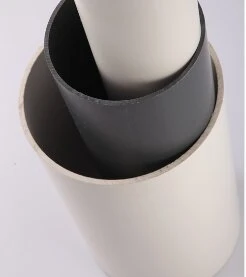Dec . 19, 2024 18:37 Back to list
High-Density Polyethylene Pipes for Efficient Water Distribution Systems
The Importance of HDPE Water Supply Pipes in Modern Infrastructure
High-density polyethylene (HDPE) pipes have revolutionized the way we approach water supply systems across the globe. With a remarkable combination of strength, durability, and corrosion resistance, HDPE pipes have become the material of choice for various applications, including water distribution, wastewater treatment, and industrial uses. In this article, we will explore the advantages of HDPE pipes, their application in water supply networks, and their overall impact on infrastructure development.
Advantages of HDPE Pipes
One of the standout features of HDPE pipes is their exceptional durability. Unlike traditional materials such as concrete or metal, HDPE pipes are resistant to corrosion, rust, and chemical damage. This resistance significantly extends their lifespan, often exceeding 50 years with minimal maintenance requirements. Moreover, HDPE pipes are lightweight and flexible, making them easier to transport and install. This flexibility allows for easier maneuvering in challenging terrains and reduces the number of joints and fittings needed, which ultimately decreases the possibility of leaks.
Another significant advantage of HDPE pipes is their environmental friendliness. HDPE is manufactured from recycled materials and is fully recyclable at the end of its life cycle. The production process for HDPE pipes also requires less energy compared to traditional materials, resulting in a lower carbon footprint. Additionally, HDPE pipes' smooth inner surfaces reduce friction losses, enhancing flow capacity and energy efficiency in water supply systems.
Applications in Water Supply Networks
HDPE pipes are widely used in various applications in water supply networks. They are particularly ideal for potable water distribution, where the materials must meet stringent regulations to ensure safety and quality. HDPE complies with various international standards, making it a preferred choice for municipalities and water supply companies.
hdpe water supply pipe

In urban areas, HDPE pipes are often employed in trenchless technology for pipeline installation. This method minimizes surface disruption and reduces the risks associated with excavation, such as damaging existing utilities or harming the environment. As cities continue to grow, the demand for efficient and minimally invasive installation techniques becomes increasingly important, and HDPE pipes present a viable solution.
In rural applications, HDPE pipes are essential for irrigation systems and agricultural water supply. Their durability against harsh environmental conditions, such as high UV radiation and extreme temperatures, makes them suitable for outdoor applications. Farmers benefit from consistent water supply management without the worry of frequent repairs or replacements, which can be costly and time-consuming.
Impact on Infrastructure Development
The integration of HDPE pipes into water supply infrastructure contributes significantly to community resilience. With climate change posing significant challenges to water resources, reliable infrastructure is essential. HDPE's resistance to weathering and its ability to withstand fluctuations in temperature and pressure make it a robust choice for modern water systems, ensuring a reliable supply even in adverse conditions.
Furthermore, as urbanization continues to surge, freshly built infrastructure must accommodate growing populations while maintaining functionality. HDPE pipes fit seamlessly into the development of smart cities, where sustainable practices are imperative. Their longevity and minimal maintenance needs help municipalities allocate resources more effectively, focusing on other essential public services.
Conclusion
In conclusion, HDPE water supply pipes represent a significant advancement in infrastructure technology. Their unique properties offer outstanding durability, environmental benefits, and versatility in various applications, particularly in the water distribution sector. As communities face the dual challenges of population growth and climate change, the sustained integration of HDPE pipes into water supply networks will be critical in ensuring access to clean, reliable water. Embracing HDPE technology not only fosters sustainable infrastructure development but also enhances the resilience of our communities for future generations.
-
Premium PVC Soft Sheets: Clear, Flexible & Durable
NewsAug.12,2025
-
Premium PVC Round Rods: Durable, Chemical Resistant, Easy to Machine
NewsAug.11,2025
-
PP U-channel: Chemical-Resistant, Lightweight & Durable
NewsAug.10,2025
-
Transparent PVC Pipe: Clear Flexible Tubing for Fluids
NewsAug.09,2025
-
Durable PP Rigid Sheet: Versatile & High-Quality Plastic Panels
NewsAug.08,2025
-
Premium Glossy PP Rigid Sheet – Durable & Versatile
NewsAug.07,2025

